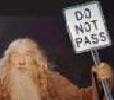This week's post is about diagnosing realistic patients with anxiety disorders. What fun.
Case Study 10: A 36-year-old man and his young son were driving through an intersection when another car ran through a red traffic light and struck them. The two were trapped in the car until a fire department rescue team freed them. The patient was bruised but not seriously hurt. His son had a broken leg. The first few days after the accident the patient was preoccupied with arranging care for his son and getting the car repaired. A few days later he began having recurrent distressing thoughts and images of the accident. Theses symptoms lasted for several weeks. The memory of his son’s screams after the car was struck seemed particularly vivid. The patient became irritable, had difficulty concentrating, and avoided talking about the accident. He went out of his way to avoid driving down the street where the accident occurred. As time went on he could no longer remember whether the traffic light was red or green when he approached it.
This patient is suffering from Posttraumatic Stress Disorder (PTSD). It is recommended that the patient should seek mental health professionals who specialize in the treatment of trauma and PTSD or local mental health clinics, psychiatric hospitals, or counseling centers for therapy (Be sure to trust the therapist or else PSTD can become worse and the therapy will not work).
Posttraumatic Stress Disorder (PTSD) is a disorder that causes anxiety, reexperience, and avoidance of things that connect with the traumatic event. The patient has recalled the event through images and thoughts, particularly his son's screams. He started to become agitated and avoided talking about the incident. The patient even stayed away from the street that the crash happened on. All of these symptoms have lasted for at least a month. These all connect to the symptoms of a person suffering from Posttraumatic Stress Disorder.
Summary: If you or someone you know is experiencing anxiety, recalling the event, and avoiding the thought of the accident, they may have PTSD and should be treated as soon as possible by a trusted PTSD therapist.

5 comments:
Nice job!
Very well written and very informative. It's amazing how the body deals with stress and trauma, but, once again, great job!
NAICE POST
This is written very well and informative. The way the body handles stress and trauma is astonishing. Amazing job!
Great job diagnosing the problem. I agree with the first two, it's amazing how the body deals with stress and trauma.
Good description of PTSD and the symptoms. I believe it was a accurate diagnosis but you could have also listed more treatment options that could have been used. Overall, pretty good.
Good job! It was very informative. PTSD must be extremely hard to deal with.
Post a Comment